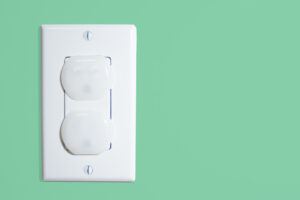Homeowner’s Guide to Electrical Safety Essentials
Electricity is undoubtedly a crucial aspect of our everyday life, but it comes with inherent risks if mishandled. Prioritizing electrical safety is crucial to prevent accidents that could potentially result in harm or even loss of life.
This guide will outline the fundamentals of electrical safety, including understanding the hazards associated with electricity, how to prevent accidents, and emergency procedures in case of an electrical mishap. Contact Sonner Electric at 661-728-0126 if you need help from a local electrician.
Comprehending the Fundamentals of Electricity
Before diving into the details of electrical safety, it’s paramount to grasp the fundamentals of electricity. Electricity is essentially the movement of electrons, which bear a negative charge. The electric current travels from an area of higher voltage to a lower one, aiming to balance the charge. The electrical current’s unit of measurement is amperes (amps).
Voltage, conversely, is the driving force behind electron flow. It’s measured in volts. Electrical power, denoted in watts, is a result of multiplying voltage and current. Understanding these key concepts is vital in comprehending electricity’s function and potential risks.
Recognizing Electrical Hazards and Risks
If not handled with the necessary precautions, electricity can pose substantial risks. It’s crucial to understand these potential hazards to prevent accidents.
Electric Burns
Electric burns occur from direct contact with an electrical current. They can cause extensive tissue damage and in extreme cases, necessitate amputation. To prevent electric burns, ensure all electrical equipment is adequately grounded and always wear safety gear when working with electricity.
Electric Shock
An electric shock is the result of an electrical current passing through the body, leading to muscle contractions, burns, and potentially, death. Like with burns, adequate grounding of electrical equipment and avoiding contact with electrical devices with wet hands or on a damp surface can help prevent electric shock.
Electrical Fires and Explosions
Faulty electrical equipment or improperly installed wiring can lead to electrical fires and explosions, causing substantial damage and potential loss of life. Ensuring proper installation and maintenance of electrical equipment and not overloading electrical circuits can help prevent such incidents.
Electromagnetic Radiation
Electrical equipment like power lines, transformers, and electrical appliances can emit electromagnetic radiation. Exposure to this can lead to health problems, including cancer. It’s best to minimize exposure whenever possible.
Implementing Electrical Safety Measures
Here are some measures you can implement to enhance electrical safety.
Consistent Electrical Maintenance
Regular maintenance of electrical systems is essential to prevent accidents. This includes inspecting all electrical devices, checking wiring, and connections, upgrading electric panels as needed, and verifying the proper grounding of all equipment.
Proper Electrical Wiring
Appropriate wiring plays a crucial role in preventing electrical mishaps. This encompasses correct installation of all wiring, minimizing the use of extension cords, and avoiding circuit overload.
Safe Usage of Electrical Appliances
Ensure safety while using electrical appliances by following the manufacturer’s instructions. Verify that all appliances are grounded correctly, avoid using damaged appliances, and keep them clear of water.
Outdoor Electrical Safety
When handling electricity outdoors, extra precautions are necessary. These include verifying all equipment is rated for outdoor use, keeping electrical connections dry, and maintaining a safe distance from power lines.
Electrical Safety in Damp Conditions
Working with electricity in wet conditions can be risky. When in such environments, wear protective gear, avoid using electrical devices with wet hands or while standing on a damp surface, and ensure proper grounding of all equipment.


